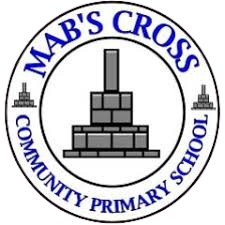Our School Curriculum
MAB’S CROSS PRIMARY SCHOOL
OUR SCHOOL CURRICULUM
The fundamental aim of any curriculum is to help children learn. We plan a range range of experiences to enable pupils to enjoy academic, physical, spiritual, moral, social and cultural activities. Our aim is to enrich their lives and give them the confidence and skills for the future. We carefully balance the requirements of the national expectations in core subjects with our aims of providing a wider curriculum which inspires children and ensures they make good progress.
Our pupils’ backgrounds, our culture and our climate for learning provide the following priorities that underpin all areas of our curriculum:
|
Priority |
Rationale |
|
Independent Learning |
We feel this is an important life skill, preparing children for secondary school and beyond. Some of our children need to be less reliant on adult support and be able to tackle challenges with a positive mind and develop strategies to do this. This will involve work on Growth Mindset to reduce the fear of failure and developing a ‘can do’ culture. |
|
Cultural Experiences
|
As a school, we aim to provide a wide variety of experiences, such as theatre visits, places of worship, residentials, museums and others which enhance children’s social, moral, cultural and spiritual development. |
|
Diversity
|
Our school is situated in a mainly white British area, with a limited understanding of different cultures and religions. In addition, our intake is becoming more diverse, and we wish to promote understanding, tolerance and respect of a multicultural school and the wider community. We would also like to promote a better understanding and awareness of the wider world, children’s place in the world and how to make it a better place. |
|
Local Area and Heritage
|
Our school is situated in the heart of Wigan, which is rich in significant periods in history, and we feel it is important our children have good knowledge of our local history. The area provides good opportunities for field studies and outdoor learning, and we feel this is a very underused resource. We are an Eco-School and wish to promote a better understanding of how to protect and look after our world. |
|
Aspiration |
We would like our children to set their own personal goals and understand the value of education to widen their future opportunities. |
To ensure our curriculum is relevant to our children, our planning is flexible to allow opportunities to replace topics with current events (e.g. The Royal Wedding, World Cup, Global Issues, General Election).
Our curriculum is carefully organised and planned for depth. To achieve this aim, we ensure there is a clear progression of skills throughout all subjects. We build in opportunities for children to return to areas which allow them to gain a deeper understanding of the skills and processes within subjects. The planning process involves the children assessing their previous knowledge and encouraging them to pose their own questions throughout the topic.
We use a four-stage learning journey for each topic: Engage, Develop, Innovate, Express.
Engage
At the Engage stage, children:
- Gain memorable first-hand experiences, such as going on a visit or inviting a special visitor into school
- Enjoy WOW experiences
- Get an exciting introduction to a topic or theme
- Begin researching and setting up enquiry questions
- Get lots of opportunities to make observations
- Develop spoken language skills
- Take part in sensory activities
- Have lots of fun to fully engage with their new topic
Develop
At the Develop stage, children:
- Improve their knowledge and understanding of the topic
- Develop and practise their new skills
- Compose, make, do, build, investigate, explore, write for different purposes and read across the curriculum
- Research their own questions and those set by others
- Follow new pathways of enquiry based on their interests
- Complete homework activities that support their learning
Innovate
At the Innovate stage, children:
- Apply skills, knowledge and understanding in real-life contexts
- Lead their own learning through individual and group projects
- Solve real or imagined problems using everything they’ve learnt
- Be inspired by imaginative and creative opportunities
- Revisit anything not fully grasped at the Develop stage
Express
At the Express stage, children:
- Become performers, experts and informers through presenting their work in a variety of ways.
- Share their achievements with parents, classmates and the community
- Evaluate your own learning
- Link what they have learnt to where they started
- Celebrate their achievements
